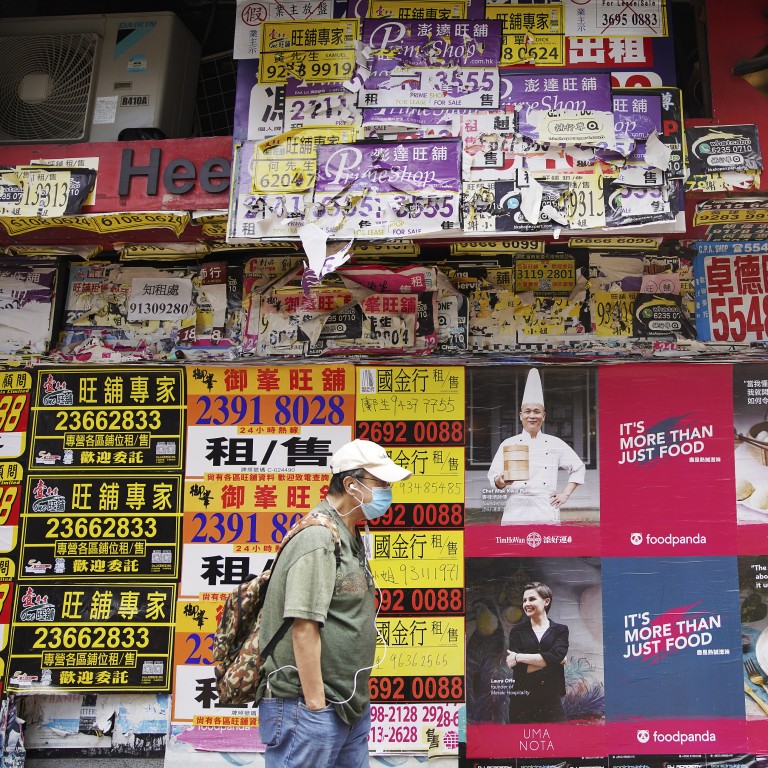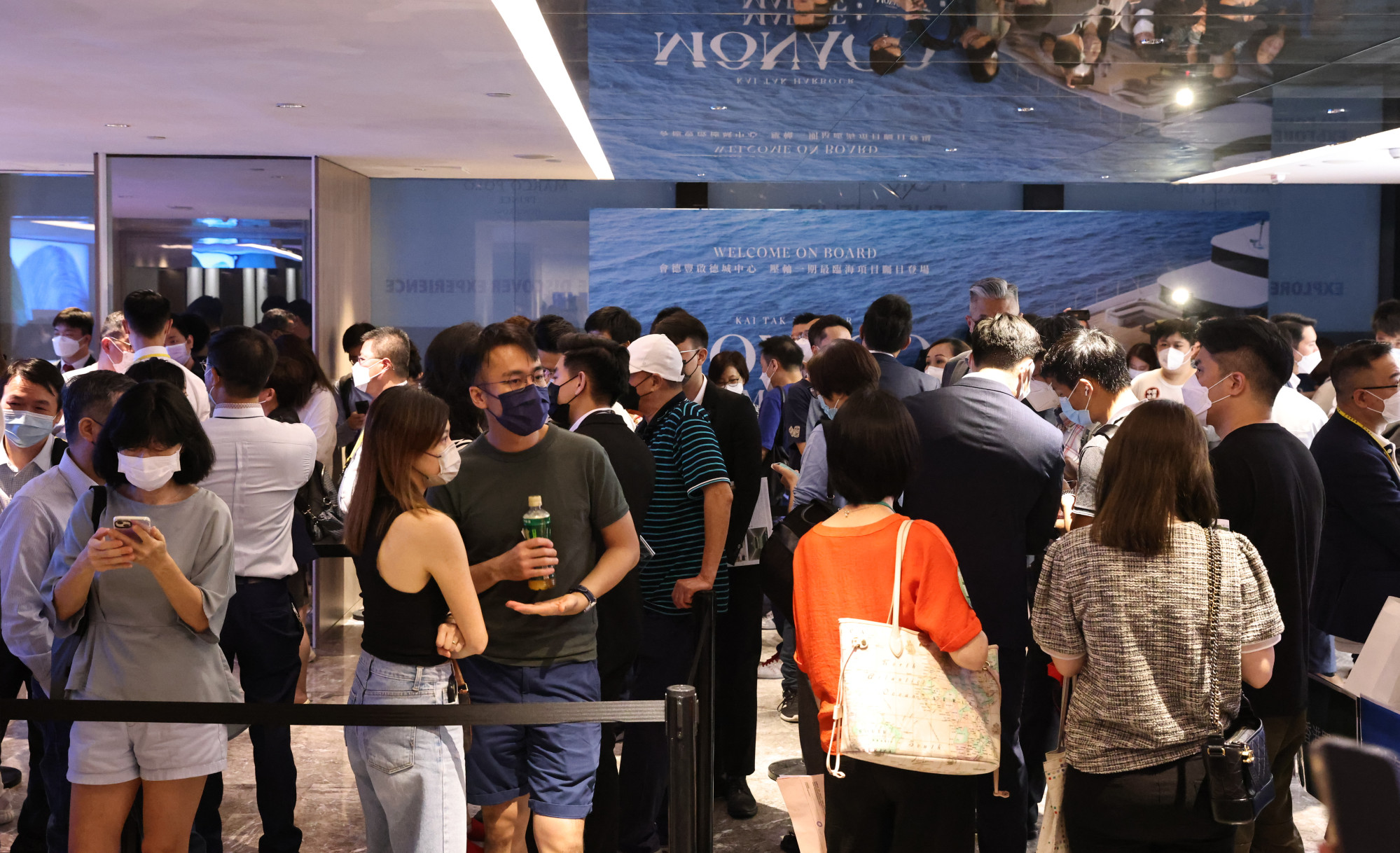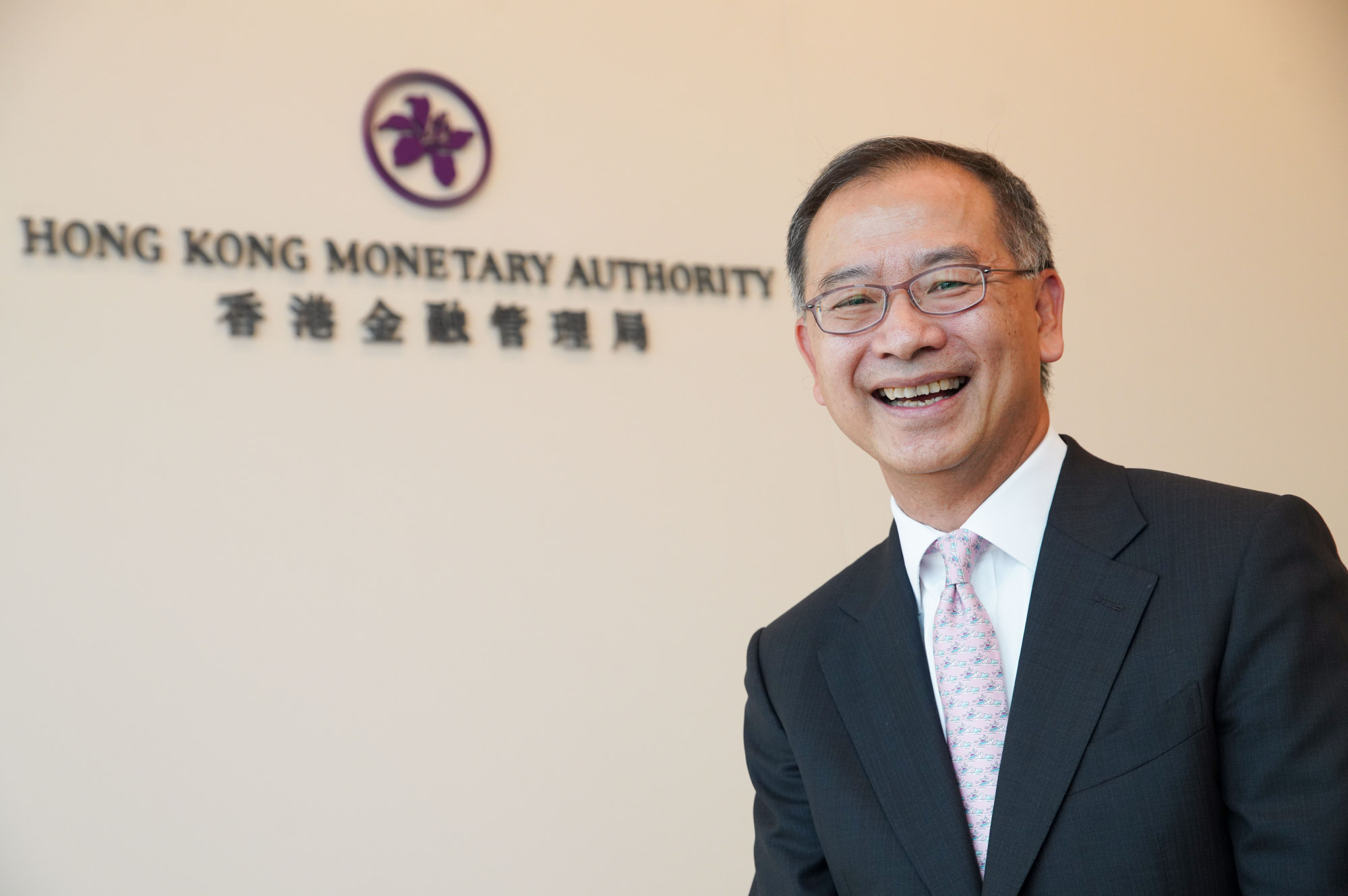
Hong Kong’s base rate rises by the most in 22 years, ushering in era of faster, bigger increases in borrowing costs even as economy slumps
- The city’s base rate rose to 1.25 per cent after the 50-basis point increase, en route to the 4 per cent expected by the end of 2023
- Hang Seng Index fell 0.4 per cent after rising by as much as 2 per cent, taking its cue from the 3 per cent overnight gain in the S&P500
Hong Kong’s cost of money soared by the most in 22 years as the city’s de facto central bank followed the US Federal Reserve to usher in an era of faster, bigger rate increases, even while the local economy is reeling from a slump.
“The interest rate adjustment will come at a much faster pace than the last cycle,” HKMA’s chief executive Eddie Yue Wai-man said in a media briefing after announcing the monetary policy, warning borrowers to “carefully assess and manage the relevant risks” in borrowing.
The Fed has signalled 10 increments in US interest rates, raising the Fed rate from zero to 2.6 per cent by the end of this year, and to 3.75 per cent by the end of 2023, economists said. That’s a faster pace than the previous cycle, when the Fed rate rose 2.25 percentage points in the four years from 2015 to 2018.
What is the Hong Kong dollar peg and why is it important?
“This is just the beginning of the [rising] interest rate cycle,” said Raymond Yeung, chief economist for the Greater China region at ANZ, the Australian bank. “Many mortgage and loan borrowers have never seen such high rates.”
“For members of the public, the rise in interbank rates will increase their mortgage repayment expenses,” said Financial Secretary Paul Chan Mo-po, in response to media questions. He also noted that with the economy not yet fully recovered and with a relatively high unemployment rate, the higher interest rates could add more financial pressure for some property owners.
Explainer: What rate increase means for Hibor, prime and mortgages
The rising base rate spills over to the interbank offer rate (Hibor), with the 12-month Hibor jumping by 17 basis points to 2.33 per cent on Thursday morning on the heels of the HKMA’s move, compared with 0.43 per cent in January.
A HK$5 million loan for 30 years will have to pay HK$976 more every month if the one-month Hibor rises to 0.6 per cent from the current 0.2 per cent, said mReferral Corporation’s chief vice-president Eric Tso Tak-ming.
On the higher end of the scale, one-month Hibor at 0.8 per cent translates to HK$1,984 in additional monthly payments on the same loan, while a 1.2 per cent rate means HK2,500 in increased payments, he said.
Hong Kong’s monetary policy has been run in lockstep with the Fed ever since the local currency was pegged to the dollar in 1983. The city’s base rate will rise to about 4 per cent by the end of 2023, according to the 10-step policy that takes the Fed rate to a 15-year high of 3.75 per cent to tamp down on rising inflation in the US economy, ANZ said.

“Hong Kong’s economy is just beginning to recover from the pandemic, so any quick upwards move in interest rate is not favourable,” said Tommy Ong, DBS Bank’s managing director of Greater China wealth management solutions, treasury and markets.
The US economy has not seen a 50-basis point rate jump since 2000 when Alan Greenspan was Fed chairman, and his “irrational exuberance” became the catchphrase that defined the easy money and mood of the Dotcom era.
The Fed raised its key rate from a target range between 0.25 and 0.5 per cent, to between 0.75 per cent and 1 per cent.
Former Fed chief Greenspan warns stock investors to run for cover
Hong Kong’s benchmark Hang Seng Index fell 0.4 per cent after rising by as much as 2 per cent in early trading, taking its cue from a 3-per cent surge overnight in the S&P500 index after the Fed pulled its punches.
The stock market has factored in rising interest rates and is unlikely to make major swings, as the Fed’s move has been foreshadowed and analysed exhaustively, said Louis Tse Ming-kwong, managing director of Wealthy Securities.
“How mainland China copes with the rising Covid-19 outbreaks [in Shanghai and Beijing] would have a bigger impact on the Hong Kong stock market than the expected interest rate rises,” Tse said.

Hong Kong’s finance officials have repeatedly warned the city’s borrowers about the risks of higher interest rates, with the HKMA’s Yue saying on May 3 in the city’;s legislature that the Hong Kong dollar is weakening as capital flows out of the city to chase after high-yielding US rates.
“HKMA is prepared to intervene in the market to support the Hong Kong dollar,” Yue said. “There is no need to worry as the Hong Kong banking sector is still full of liquidity.”
“The HKMA intervention will effectively drain liquidity from the market, which will result in the interbank interest rates going up,” said DBS’ Ong.

